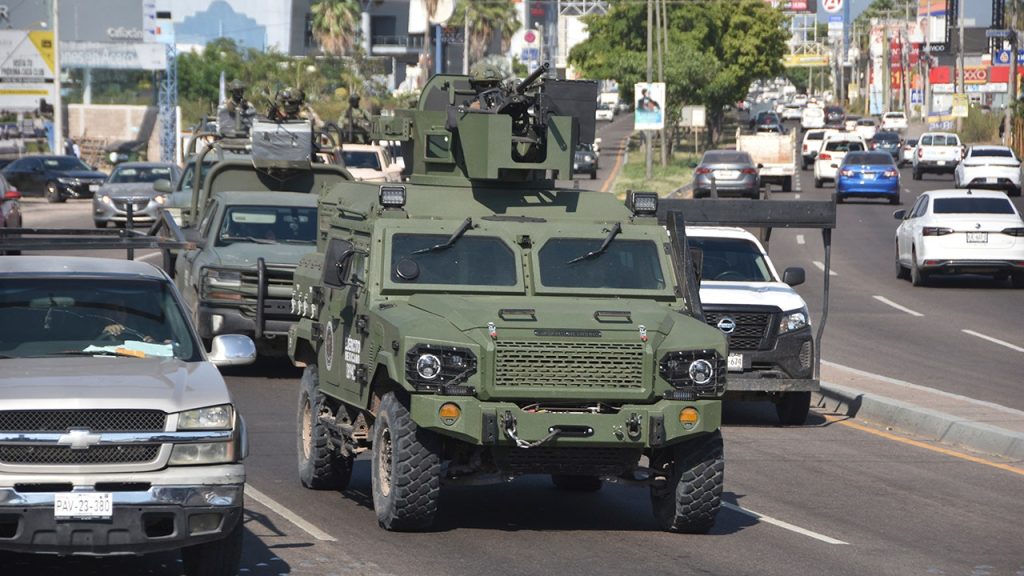Assailants fired a dozen gunshots at a building housing the newspaper El Debate in the embattled northern Mexico state of Sinaloa, where rival factions of the Sinaloa Cartel have been staging violent battles. The incident was a direct attack on press freedom, but fortunately, no one was injured. Threats against journalists and their sources have increased significantly since two Sinaloa drug capos were arrested in the United States, leading to a violent battle between cartel factions in the region. Journalists have reported being stopped by gunmen on roadways, making it challenging to cover the ongoing violence on the outskirts of Culiacan.
Journalists have been caught in the crossfire of this violent conflict, leading to a dangerous environment for media professionals to work in. Local residents have turned to social media for updates on safety and danger in the region due to the intimidation tactics employed by warring cartel factions to prevent coverage of their battles. While state authorities downplay the violence, online videos depict scenes reminiscent of a war, including burning vehicles, bodies, and cartel convoys speeding through towns. The Sinaloa Red Cross was forced to issue a statement denying reports of paramedics being kidnapped, highlighting the confusion and fear caused by the violence.
State prosecutors in Sinaloa have been largely ineffective, with the chief state prosecutor resigning after submitting false information about a high-profile killing, and the municipal police force in Culiacan being temporarily disarmed by soldiers to investigate potential ties to drug cartels. The President of Mexico has condemned the attack on the newspaper and stated that investigations are ongoing. The violence in Sinaloa has escalated to the point where even the Mexican Red Cross felt compelled to clarify its neutrality in the conflict to maintain its humanitarian mission.
The ongoing violence in Sinaloa has created an atmosphere of fear and uncertainty for journalists and residents alike, with warring cartel factions using intimidation tactics to prevent coverage of their battles. Journalists working in the area have been targeted, leading to increased restrictions on reporting the violence. The reliance on social media for information has increased due to the challenges journalists face in covering these events. The Mexican government’s response to the violence has been criticized for downplaying the situation, as state authorities continue to assure the public that everything is under control.
The violence in Sinaloa has escalated due to the arrest of key cartel figures, leading to factional fighting and a surge in threats against journalists. The attacks on the media highlight the dangers faced by journalists trying to cover the violence in the region. The war-like scenes depicted in online videos have further increased fear and uncertainty among residents, as conflicting reports and misinformation spread. Despite the efforts to intimidate journalists and suppress coverage, the media continues to play a vital role in informing the public about the situation in Sinaloa.


